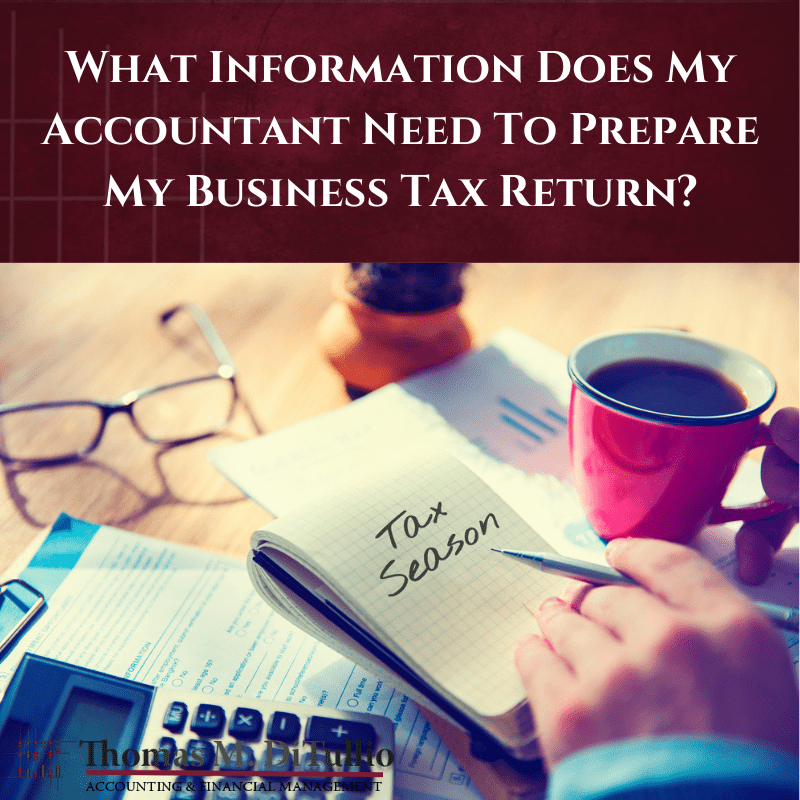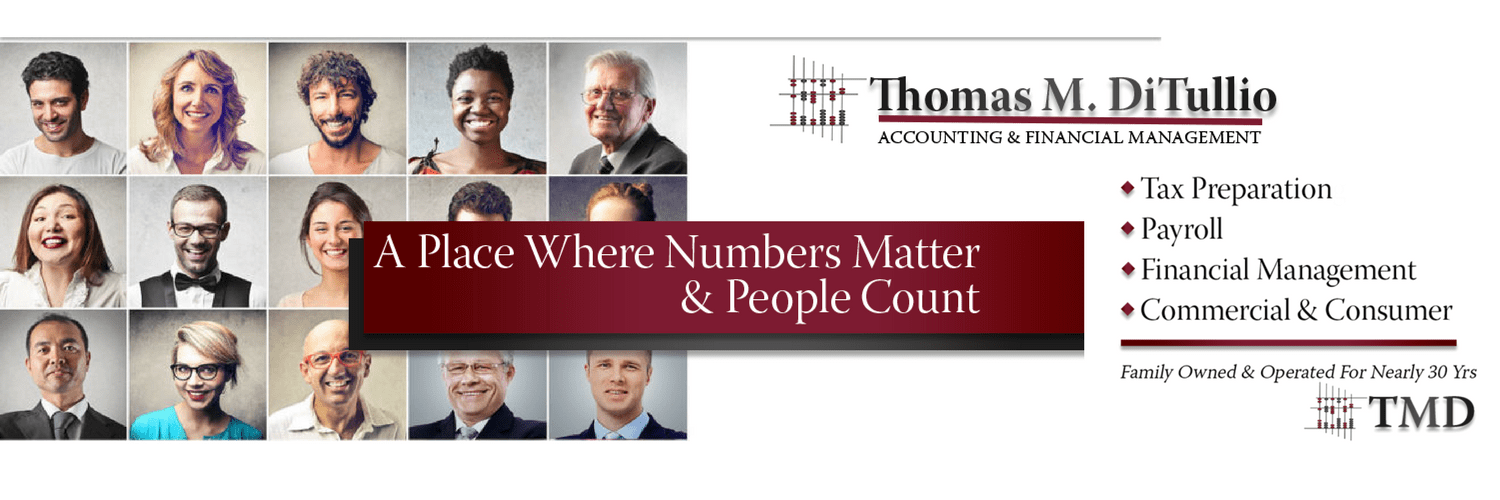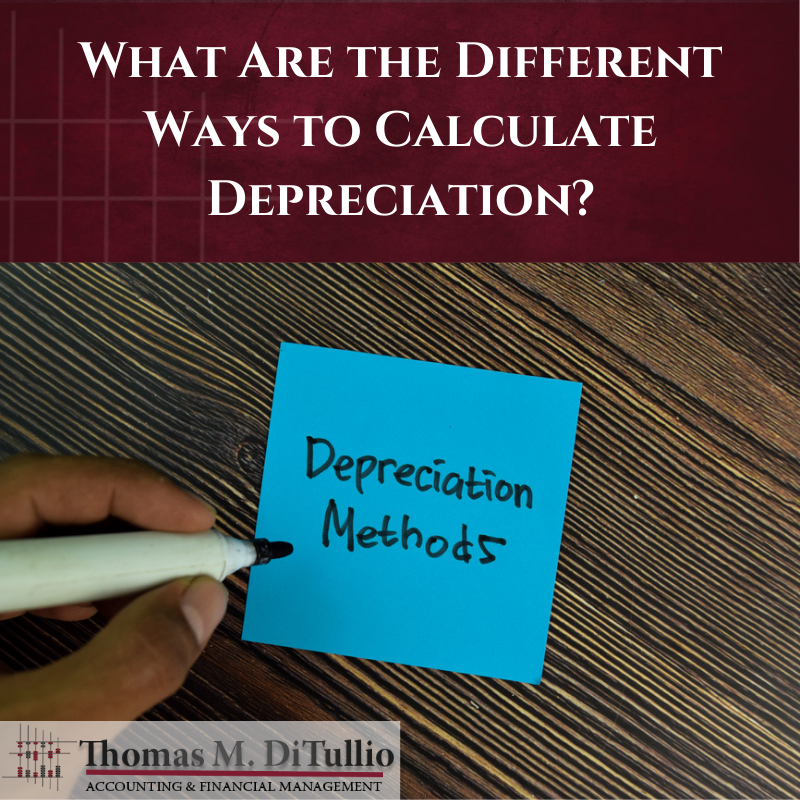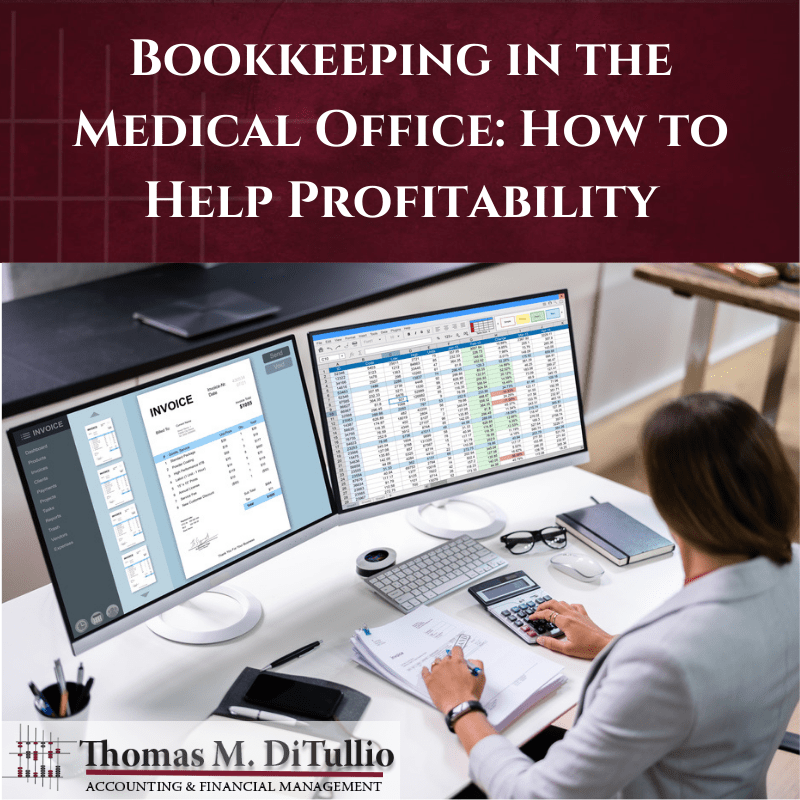What Information Does My Accountant Need To Prepare My Business Tax Return?
As a small business owner, knowing what you need to gather to file your business tax returns can seem difficult. Keeping accurate records throughout the year can go a long way to helping your business at tax time. If you are a new small business owner, filing taxes for your business for the first time can be overwhelming. Changes in the state and federal tax laws can also make tax filing even more daunting for business owners who wait until the last minute to pay taxes and then have to scramble to gather all of their receipts, calculate business income and profit and loss statements, and figure out the transactions your business has conducted during the past year. Here is some information from our accounting professionals here at TMD Accounting about tax filing for small businesses and the documents your accountant will need.
Why You Should Work With an Accountant
Many small business owners don’t have a good understanding of business taxes and finances, making it likelier that they will make mistakes when they file their business tax returns. You might also miss some business tax deductions that could reduce the amount your business might have to pay. It will likely be in your interests to retain an accountant to help with your business taxes. An accountant can help you identify the documents and information you will need to file your return and pay your taxes so that you can focus your attention on your business’s day-to-day operations.
Working with an accountant will cost less if you gather as much information as you can before you meet with the accounting firm. Since businesses differ from each other, so will the information that you might need to bring with you to your accountant’s office. However, some general information your accountant will need includes information about your business’s profits and losses, gross income, records of goods your business sold, client invoices, sales records, salaries, receipts, and your business’s tax return from last year if applicable. While you can try to file your business taxes yourself, your business might end up paying significantly more than you should if you instead work with an accountant who can identify credits and deductions that your business can claim.
Tax Filing Dates For Businesses
Businesses have different tax filing deadlines based on how their businesses are structured. They also have to pay different taxes and file different forms based on their business entity whether their business is structured as a limited liability company, sole proprietorship, S corporation, partnership, or C corporation.
You might need to pay the following five types of taxes for small business owners:
- Self-employment tax
- Employment tax
- Excise tax
- Estimated tax
- Income tax
Once you have calculated your earnings, deductions, and credits, the following forms and dates apply to the different business structures:
- Sole proprietorship or single-member LLC- Report business profits and losses on Schedule C filed with the business owner’s personal income tax return on April 15 of each year
- Multi-member LLC- Use Form 1065 and Schedule K-1 for each member and file by March 15 each year
- Partnership – Form 1065 and Schedule K-1 for each partner due either on March 15 or on the 15th of the third month following the end of the business’s tax year
- C corporation – Form 1120 due on April 15 or four months following the end of the corporation’s tax year
- S corporation – Form 1120 S and Schedule K-1 for all shareholders due by March 15 or three months following the end of the company’s tax year
- Self-employed – Form 1040-ES each quarter to pay quarterly taxes
What Documents Do I Need to File Business Taxes?
Instead of waiting until the last minute and feeling stressed out, you should gather the documents your accountant will need well in advance. With some basic organization and preparation, you can make filing your business taxes less of a hassle. Gather the following documents for your accountant:
- Identification information – Social Security number and identification card (driver’s license, state-issued ID, military ID, green card, passport, or etc.)
- Past year’s tax return if applicable
- Profit and loss statements
- Gross receipts from services or sales
- Accounts receivable if using the accrual accounting method
- 1099-INT for business accounts or business bank statements
- Information about business assets
- Receipts
- Beginning and ending inventory amounts
- Inventory purchases
- Advertising expenses
- Phone, computer, and internet expenses
- Travel expenses for business travel, including mileage logs and maintenance records for business use of a vehicle locally and airfare and hotel expenses for travel out of the area
- Contract labor expenses for amounts paid to subcontractors
- Fees and commissions
- Business insurance
- Office lease expenses
- 1098-T to calculate home office deduction
- Payroll expenses
- Employee benefits paid for employees
- Estimated taxes paid
Additional Tips About Filing Taxes
If you work with your accountant throughout the year, filing your business taxes will be much easier. You can send your accountant your business’s bookkeeping records for reconciliation throughout the year so that you will have a better idea of where your business’s finances stand. Your accountant can also advise you about the types of records to keep and ways you can claim deductions you might not be aware of. The key is to keep accurate records, save receipts, and keep your business’s financial records organized.
Get Help From an Accountant for Your Small Business
When you are trying to run your business, thinking about filing business taxes might seem overwhelming. TMD Accounting’s small business accounting services can help your business to file accurate and on-time business tax returns. To learn more, contact us today at 1-856-228-2205.














